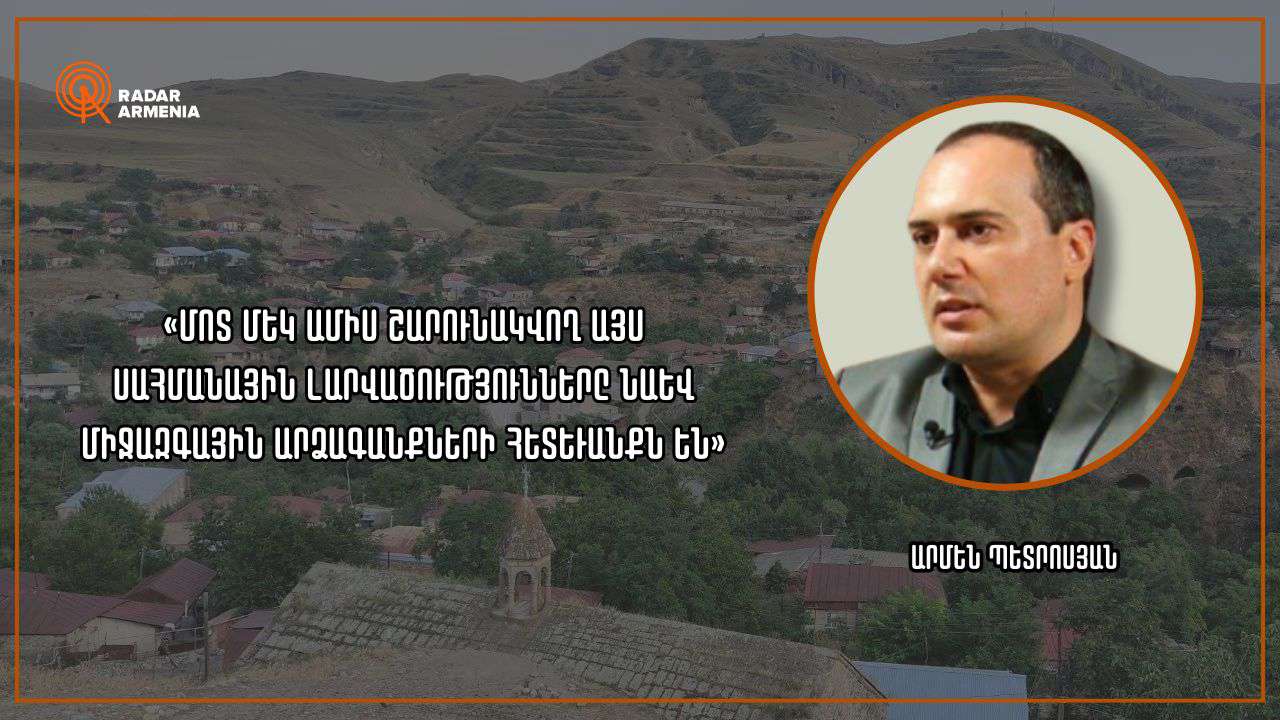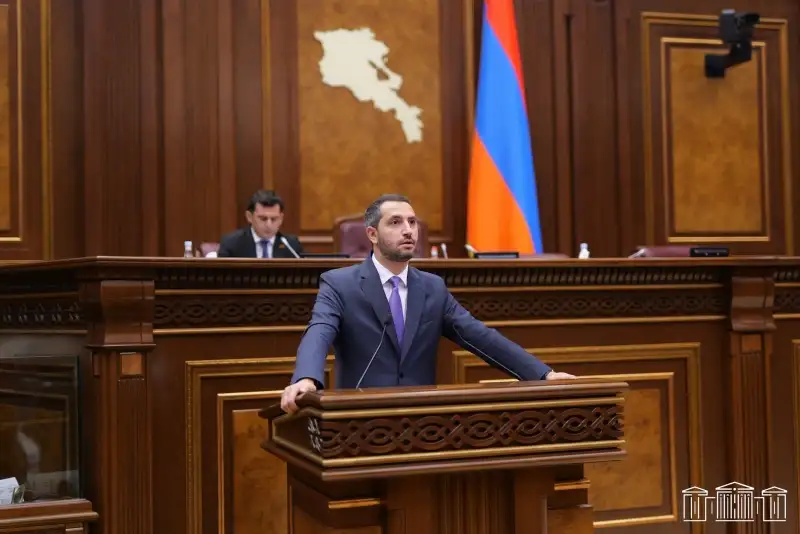Regional issues expert Armen Petrosyan noted in an interview with Radar Armenia that Azerbaijan's conditions for signing the peace agreement are artificial.
- The "peace agreement" provisions seem to have been finally approved. The Armenian side has expressed willingness to sign it several times, while Azerbaijan still puts forward conditions. What do you think Azerbaijan is trying to achieve? Are the demands it has put forward really important, or is it simply trying to avoid signing the agreement?
- Azerbaijan, by constantly putting forward conditions and often setting artificial preconditions, is trying to avoid signing the peace agreement and maintain relations with Armenia in a confrontational plane for a long time. Several factors influence Azerbaijan's position: first, global and regional developments allow Azerbaijan to remain in destructive positions and strive to get the most from Armenia. Although at the moment, at the public level, two main preconditions are being discussed: the constitution amendment and the issue of dissolving the OSCE Minsk Group, Azerbaijan's expectations are numerous. For example, there is already talk about the need for a channel connecting Azerbaijan to Nakhichevan through Armenia's territory. In other words, this issue is being raised alongside other preconditions. In addition, there are many different issues, such as demarcation. In other words, to receive all possible territories from Armenia without giving up any territory, including the Artsvashen enclave, the occupied positions of Jermuk. The cessation of the activities of several strategically essential factories and industrial enterprises on the territory of Armenia, the cessation of Armenia's armament, etc. In other words, as long as there is an opportunity, Azerbaijan will try to put forward restrictions in front of Armenia; why not also the issue of the return of those 300 thousand Azerbaijanis? Azerbaijan aims to achieve unilateral concessions against Armenia using all levers while there is an opportunity. This is why Azerbaijan refuses to constrain its capabilities with any document.
- Aliyev demands that Armenia change the constitution. What justifications can there be for this demand, and what can concern him?
- The Azerbaijani side has been discussing changing the constitution for several years, referring to the declaration of independence in its preamble. However, this is artificial reasoning because the Armenian constitution cannot hinder normalizing relations between the two countries. In reality, understanding that changing the constitution is impossible, the goal is to prolong the conflict by blaming Armenia. This is an artificial precondition, and the goal is to not sign the peace agreement for a long time, using Armenia's behavior as a justification. If this government leaves, what will prevent the new government from changing it, having a new constitution and again including the Declaration of Independence and other provisions that may have some implications for the Artsakh issue? Nothing prevents it. Therefore, it is clear that this precondition is artificial. At this point, we all understand that a new constitution is almost impossible in the face of such domestic political realities.
- Besides constitutional amendments, Azerbaijan's demands include the Minsk Group's dissolution. What role does this group play now, and why is Aliyev so afraid of its existence?
- This is also an artificial condition because Azerbaijan understands very well that the OSCE Minsk Group is an international format formed within the framework of a global organization. That organization can dissolve it or not, depending on the interests and programs of the co-chairing countries. For example, if the United States or Russia does not want to dissolve it, only the application of Armenia and Azerbaijan will not be enough. For instance, they will find that many issues related to the Artsakh problem and the rights of the Artsakh people have not been resolved. The Azerbaijani president is more afraid that, being in a vulnerable position due to his authoritarian policy, numerous international structures and actors may use this circumstance to pressure him, perhaps to impose sanctions or interfere in Azerbaijan's internal affairs. Azerbaijan tries to use this period in this favorable geopolitical situation to achieve the group's dissolution. Considering the current realities, this may be possible at present, but after a specific stabilization in the world, the dissolution of this group will be more difficult.
- If the agreement is signed, what will it give to Armenia? Can it guarantee peace?
- If the agreement is signed, of course, it will significantly strengthen the security of the Republic of Armenia, and the possibilities of new claims by Azerbaijan towards Armenia will be narrowed, but, at the same time, it should be noted that this agreement will be able to ensure all the threats is also unrealistic. Azerbaijan's ambitions can be mitigated exclusively by restoring the power and military-political balance in the region. That is, when the Republic of Armenia significantly increases its defense potential, promising problematic consequences for Azerbaijan in the event of possible aggression, when such partnership and alliance relations are formed that will not allow Azerbaijan to take any unnecessary steps towards the Republic of Armenia. It is not so realistic to expect the signing of a peace agreement, at least while the region and the world are uncertain.
- How would you assess the international reaction to Armenia's readiness to sign a peace agreement and Azerbaijan's demands?
- The international reaction to the agreement of the text of the peace agreement by Armenia and Azerbaijan is very positive, as expected. Several dozen countries have welcomed this achievement. Of course, few of them have delved into the document's provisions. At the same time, it should be noted that these numerous attempts to welcome do not entail any obligations for Azerbaijan, and among the welcoming actors, no country intends to seriously engage in the process and force Azerbaijan to sign the document, and such a disposition among external actors is also the reason that additionally contributes to Azerbaijan's deconstructiveness. On the contrary, such an international reaction has also irritated Baku to a certain extent. These border tensions that have been going on for about a month are also a consequence of these reactions. Azerbaijan wants to show that only the mutual agreement of the text does not mean the end of the conflict. Moreover, there is no such environment at the moment; the situation on the border is tense, and the possibility of a new war is not ruled out. At the moment, these international reactions have had the opposite effect, provoking Azerbaijan.
Angela Poghosyan


















